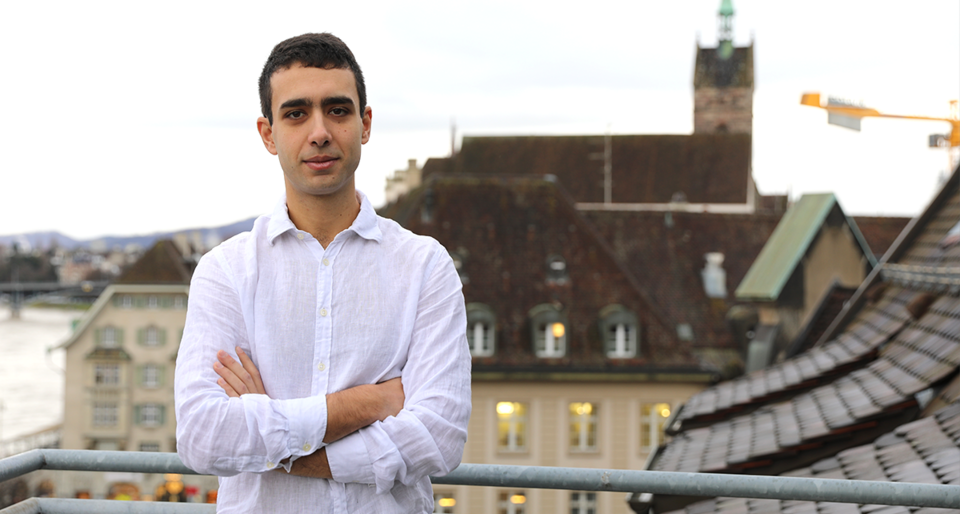/ Jana Winkler
Marco Inversi receives CUSO Graduate Colloquium Prize for the best PhD presentation
The Swiss Doctoral Program in Mathematics annually awards a prize for the best PhD presentation at the CUSO Graduate Colloquium. This year, Marco Inversi, a PhD student in the Analysis research group of Prof. Gianluca Crippa, received the prize.
Under the label Swiss Doctoral Program in Mathematics, the departments and institutes of mathematics at the universities of Basel, Bern, Fribourg, Geneva and Neuchâtel have joined forces to offer doctoral students a joint doctoral program. This includes an annual colloquium where participants have the opportunity to share their work with other doctoral students from all areas of applied and pure mathematics. The best presentation is awarded a prize, donated by Birkhäuser Publishing House.
Mathematical explanation of an experimental observation
As part of his doctoral thesis, Marco Inversi is working on a sub-area of fluid dynamics, the so-called Onsager conjecture: According to the law of conservation of energy, energy is conserved in a closed system. In nature however, it is possible to observe fluid systems that dissipate energy due to the chaotic state they are in. Understanding this phenomenon, known as "anomalous dissipation", is one of the central questions in the theory of turbulence.
From a mathematical point of view, this problem translates into the study of irregular solutions of the Euler equation. As early as the first half of the 20th century Onsager described the characteristics that a chaotic fluid must possess to exhibit anomalous dissipation. These assumptions have been experimentally confirmed over the decades. Over the past thirty years, mathematical research has confirmed many of Onsager's hypotheses. In the sole relevant physical case, however, the mathematical conjecture remains unsolved, underscoring its importance within the realm of physics. In fact, nothing is known about the behavior of a fluid that is exactly in the chaotic state predicted by Onsager, that would allow the phenomenon of anomalous dissipation to occur. What exactly happens in this state and why? This is the question Marco is investigating as part of his doctoral thesis.
"Nobody does research on something that bores them"
A particular challenge at the CUSO Graduate Colloquium is the broad audience from all areas of mathematics. In order to prepare a talk that is understandable for all listeners, it is necessary to formulate complex contexts in an understandable way. "Even complicated questions can be asked in a simple way. And especially with complicated problems, it is important that we can convey why they are interesting," says Marco. "Nobody researches something that bores them and communication without understanding is wasted potential". Breaking down your own research to some simple and interesting key aspects is a time-consuming undertaking but "it also helps me to get back to the core question. When I give a talk, it's not supposed to be a crash course, but I want to spark the same interest in others that led me to tackle this topic".
Further information on the Swiss Doctoral Program in Mathematics can be found here.

